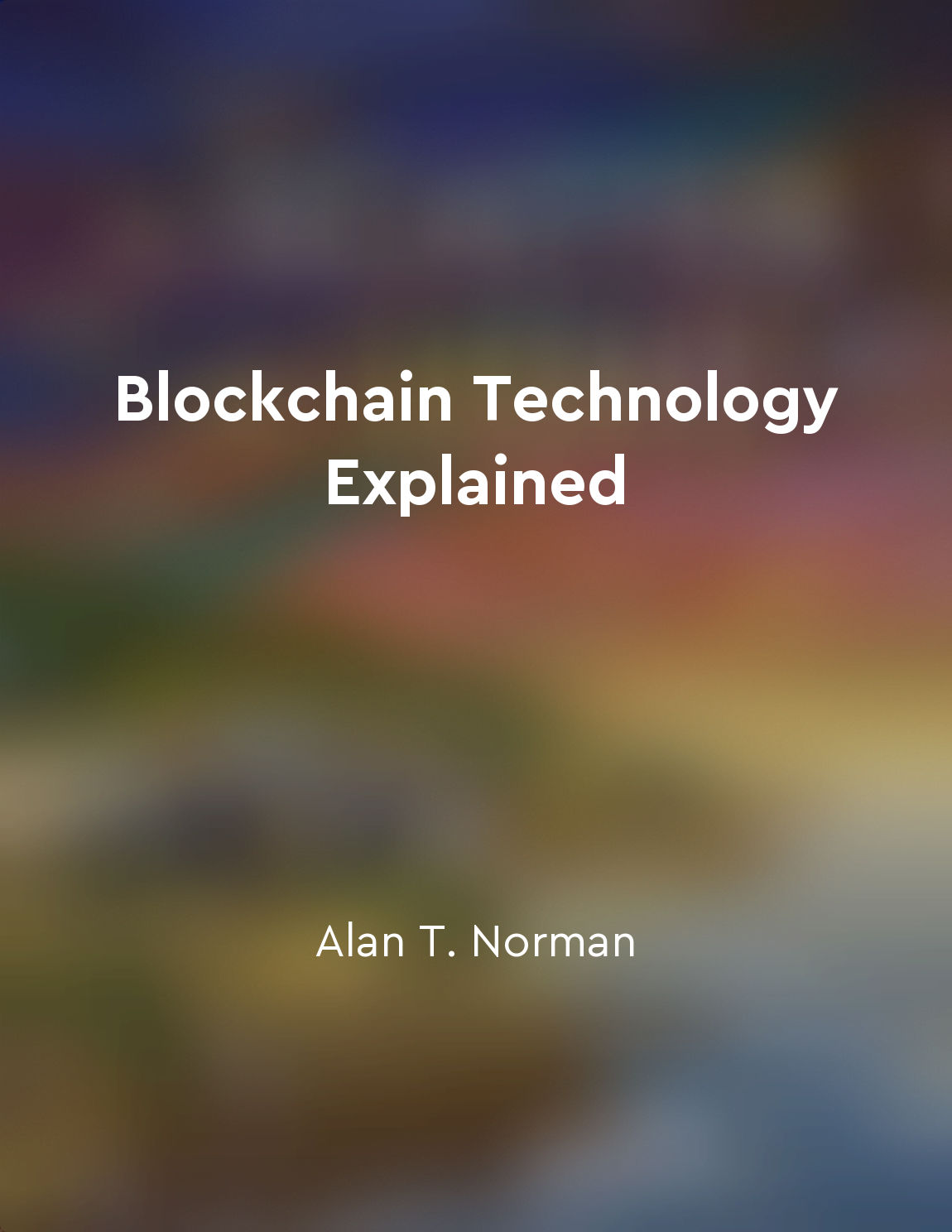Smart contracts automate complex processes and eliminate the need for intermediaries from "summary" of Blockchain Technology Explained by Alan T. Norman
Smart contracts are an integral part of blockchain technology. These self-executing contracts are coded in a way that they automatically enforce and execute the terms of an agreement. The beauty of smart contracts lies in their ability to cut out the need for intermediaries, such as lawyers or notaries, to oversee and validate transactions. By automating complex processes, smart contracts streamline operations and reduce the risk of errors or fraud. This automation is made possible by the decentralized nature of blockchain technology, which ensures that all transactions are recorded and verified by a network of computers rather than a single centralized authority. The elimination of intermediaries not only saves time and money but also increases transparency and security. Since smart contracts are stored on a blockchain, they are immutable and tamper-proof, meaning that once a contract is executed, it cannot be altered or tampered with. This level of security and trust is crucial in industries where sensitive or valuable information is exchanged. Furthermore, smart contracts can be programmed to trigger actions based on predefined conditions, such as releasing funds once a service is delivered or transferring ownership of an asset once payment is made. This level of automation not only simplifies complex processes but also ensures that all parties involved adhere to the terms of the agreement.- Smart contracts revolutionize the way agreements are made and executed by automating processes, eliminating intermediaries, increasing transparency, and enhancing security. As blockchain technology continues to evolve, the potential applications of smart contracts are limitless, paving the way for a more efficient and trustworthy digital economy.


